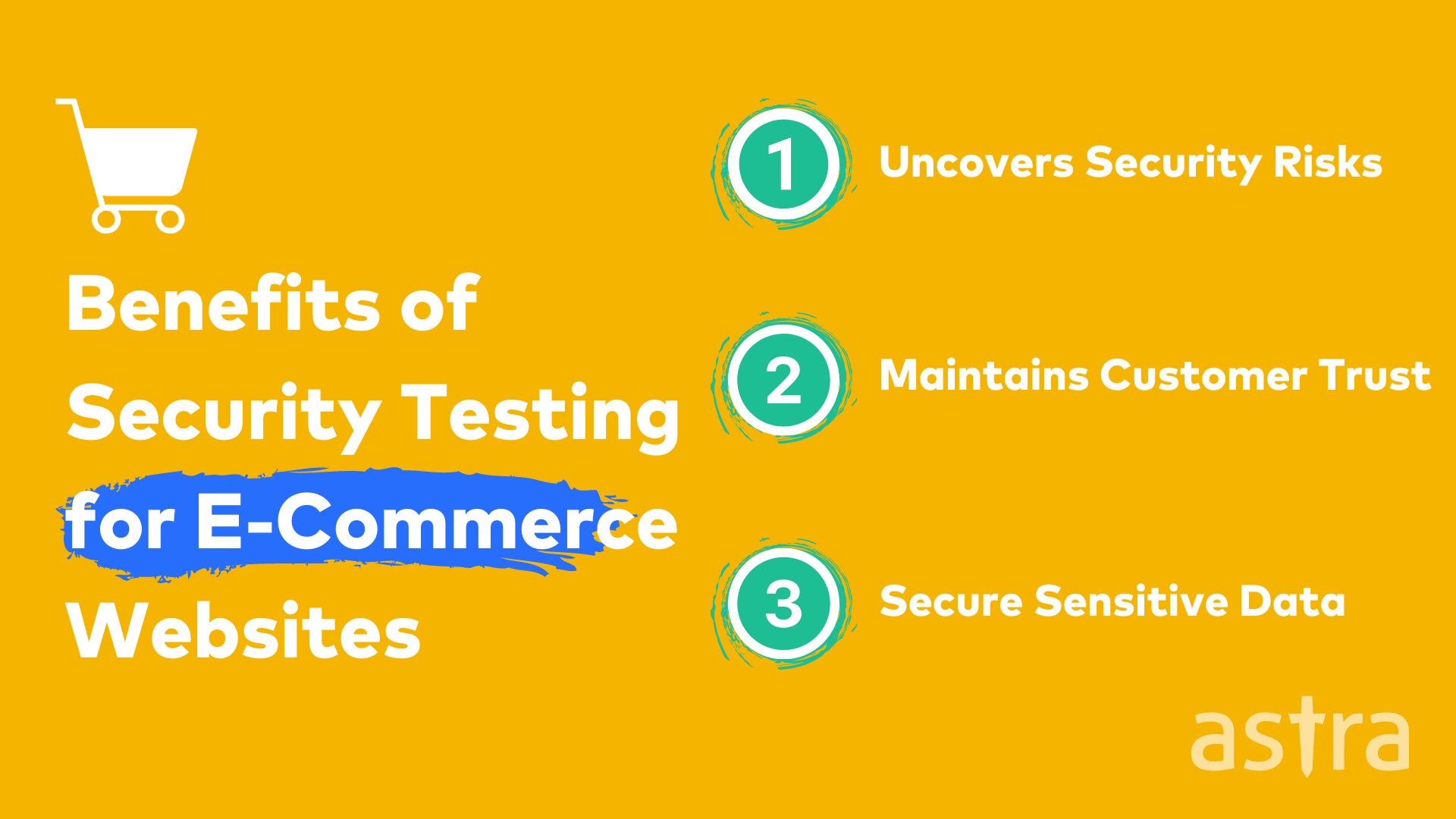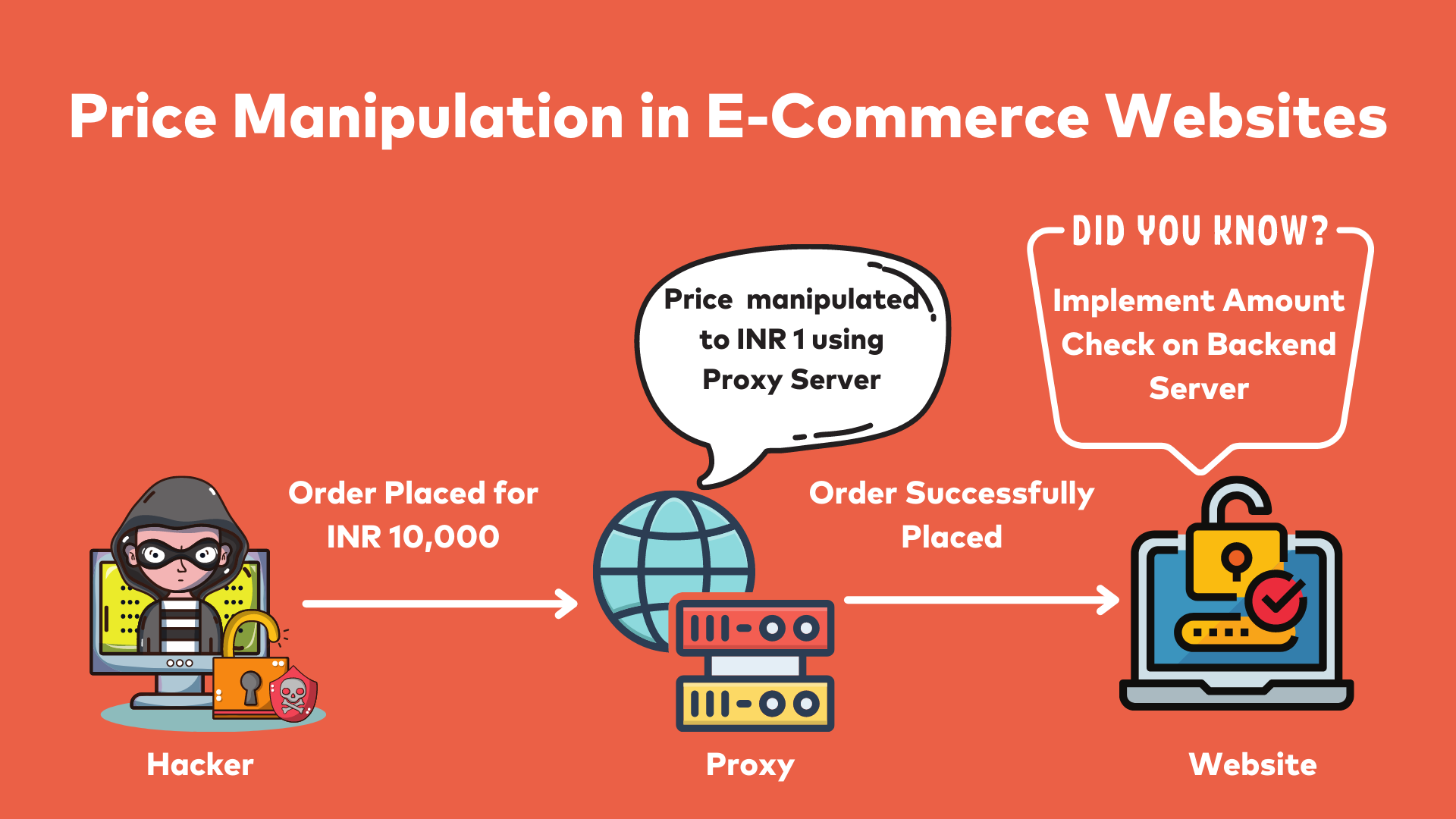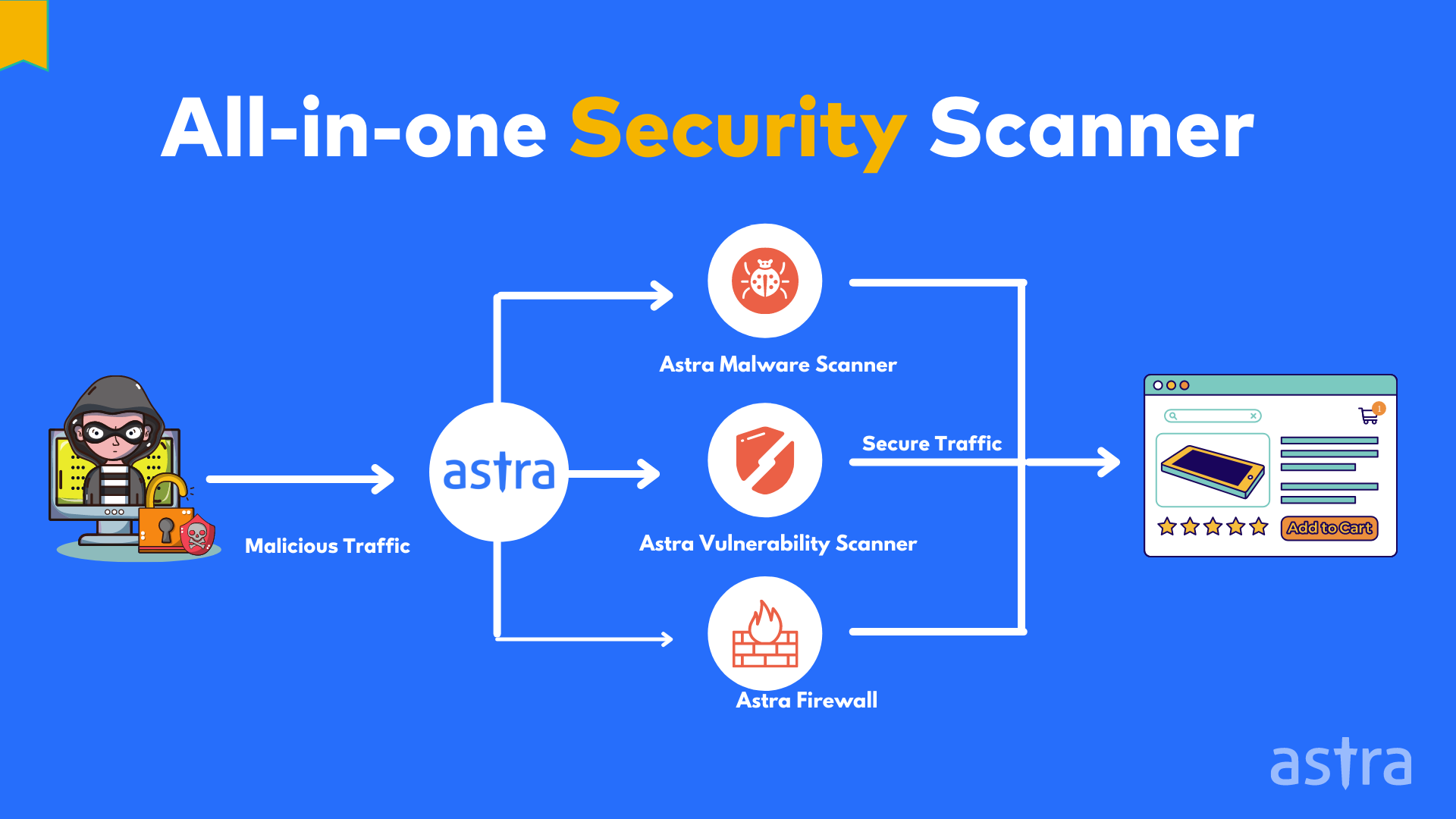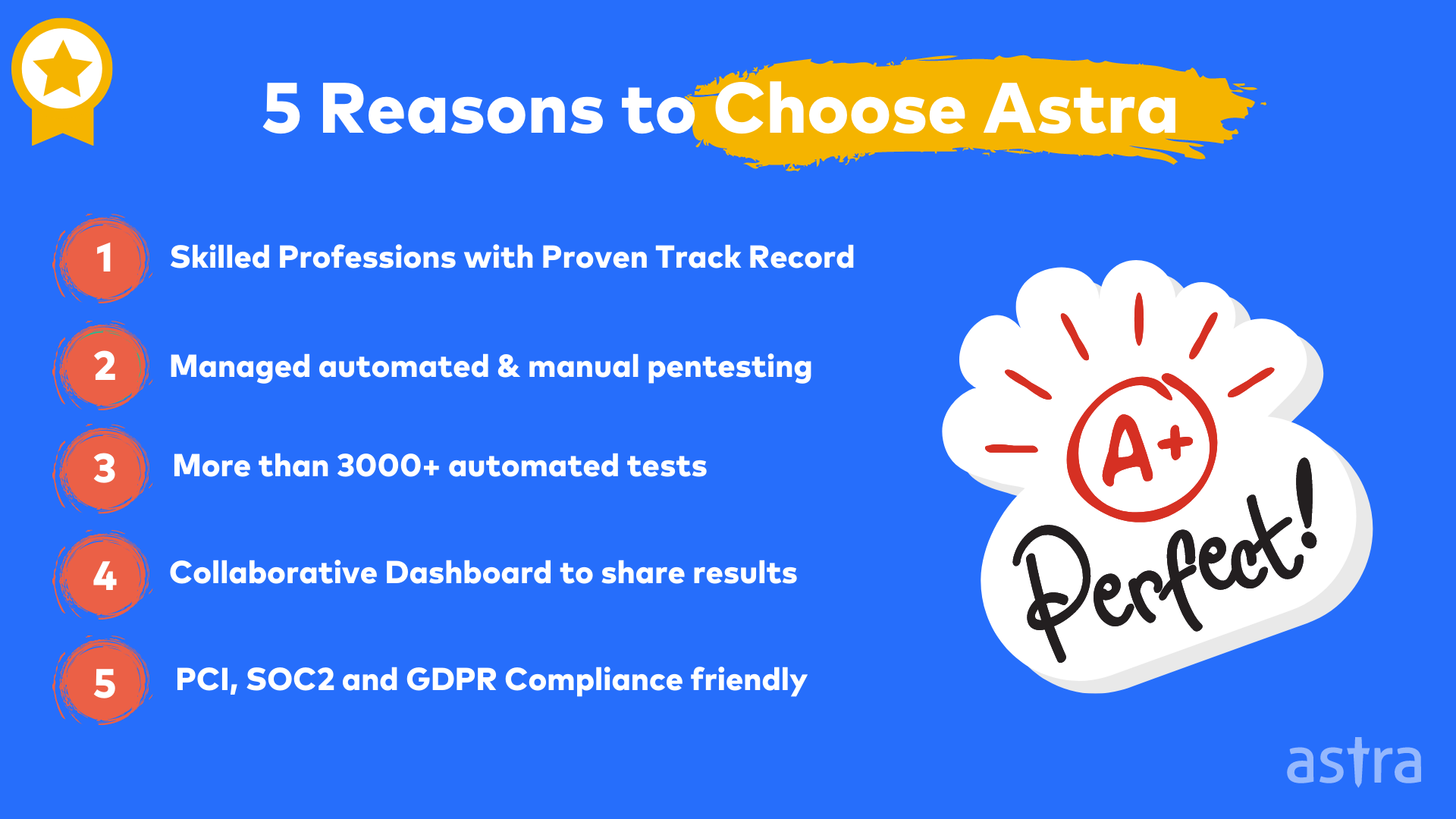It is estimated that there are over 26 million e-commerce websites out there all over the world. Suffices it to say that this makes E-commerce a huge industry. The number of online businesses has increased phenomenally in the past few years.
It is safe to say that everyone in the world has become a potential customer of an online business or website. This is a great thing, but it is not all roses. Because of this, hackers are also targeting more e-commerce businesses.
E-commerce businesses have to be very much careful about the security of their websites because if they get hacked then they can lose their reputation and they can lose their customers which is why it’s important to perform security testing. In this blog post, what security testing for e-commerce websites is and why it is important.
What is Security Testing for E-Commerce websites?
Security testing is the process of testing a system or application to discover vulnerabilities that an attacker may exploit. Security testing is often conducted by a special team of security testers who are independent of the development process.
The main aim of security testing is to identify areas where there are vulnerabilities in the system or application and fix them. The art of security testing is to find vulnerabilities without breaking the system or application.
Security Testing for E-Commerce Websites is a process of testing the security of an E-Commerce website and its components like shopping cart, payment gateway, etc. which are usually attacked by hackers and malicious users.
An e-commerce website requires complete security testing to ensure that any data breach is avoided. Security testing should be conducted by a team of certified testers who are experienced in the field.
Reading Guide: Ecommerce Security: Importance, Issues & Protection Measures
Why is Security Testing for E-Commerce websites important?
E-commerce stores don’t have the luxury of being small businesses with a limited number of users. When it comes to online shopping, the sky’s the limit. With the convenience of online shopping, the appeal of e-commerce sites is undeniable and it’s a booming industry. But with the boom comes more vulnerabilities that need to be considered.
With the many new features, however, come new security risks that need to be accounted for, especially when you’re dealing with private data like credit card information and customer addresses.
Security testing is one of the most crucial elements in e-commerce websites because of the confidential data and sensitive information that is handled. An e-commerce website is bound to face security threats with its high profile, data, and information.
E-commerce scams are a real thing that’s being dealt with. These scams are very harmful and are costing a lot of money to online stores. There are a lot of different ways that e-commerce websites can be hacked:
- Hacking directly into the database
- Exploiting coupon code vulnerabilities
- Payment gateway vulnerabilities
- DDOS attacks, and many more.
Are you unable to access your website? Is your website experiencing hacking issues? Find out in 15 seconds.

Why do hackers target E-Commerce businesses?
Over the last few years, a large number of e-commerce businesses have been hacked. This is because of the data that they store on their website. E-commerce businesses store a lot of sensitive user data such as:
- User information
- Credit card data
- Passwords
- Order details
- Address details and much more.
When this data falls into the wrong hands, it can be used for identity theft. This leaves you with a ton of problems and you may also be liable to pay for any damage that is caused by the stolen information.
Aside from the monetary value of the data, there are other reasons why e-commerce businesses are targeted. Sometimes, hackers target e-commerce businesses to vandalize them.
Also Read: Planning for a Pentest? Here’s What You Should Know
Top 3 Types of Security Vulnerabilities in E-Commerce Businesses
E-commerce websites are among the most popular types of websites on the web. With a large number of businesses using them to sell their products, there are also a lot of security vulnerabilities found on these websites. Let’s discuss some of them in depth.
1. Payment-Related Frauds
- Credit Card Fraud: Here, cash advances on your credit card are made use of by criminals to make purchases.
- Amount manipulation before payment: This is the manipulation of parameters of a sale between client and server where credentials and or price of products are changed to a different higher value.
- Bypassing payment checksum: This is a type of payment tampering where prices of commodities or application data are modified during the checkout process to lower the values.
- Quantity manipulation before payment: Here, the quantity of goods bought is manipulated thereby increasing the price of the total buy without the knowledge of the customer.
- Currency manipulation before payment: In this scenario, the currency value is tinkered with for ill-gain.

2. Order and Cart Management
- CSRF to add and remove items to the cart
- IDOR to fetch Order Details
- Placing orders with fake order details
- Getting back money after order cancellation
- Missing phone number verification for COD
3. Coupons and Credits/Rewards management
- Using multiple coupons on the same order
- Race condition on using the same coupon on multiple orders
- Coupon is not expired after order cancellation
- Guessable or predictable coupon codes
- Missing coupons validity
Although the list of vulnerabilities is never ending, we have mentioned some of them.
Also Read: Top 10 E-Commerce Security Threats
4 Best Practices to avoid security vulnerabilities
E-Commerce websites must be tested for vulnerabilities regularly as they are under the constant threat of attacks and breaches. Besides this, the implementation of certain measures can greatly help avoid certain vulnerabilities.
Let’s understand some of these important practices to avoid security vulnerabilities:
1. Use Secure Protocols
The most common security vulnerabilities are caused by the use of insecure protocols. Most of the time, it’s because the developers don’t pay attention to the security of the connection and they don’t know how to check if the connection has been encrypted. The use of secure protocols (such as TLS 1.3) is a good practice that should be followed on all e-commerce websites.
2. Use Strong Passwords and Encryption
The next common security vulnerability is caused by the use of weak passwords. It’s a good practice to use strong passwords and to ensure they are encrypted. The use of strong passwords and encryption technology is something that should be on the checklist of every e-commerce website.
3. Securing Payment Gateway
The payment gateway is the heart of the e-commerce website. It is the most crucial component of the e-commerce business. If your payment gateway is down or if someone gains access to it then it is the same as letting the thieves into your house.
You wouldn’t want that to happen, would you? It is one of the most sensitive parts of the e-commerce website and it should be secured at all costs. As it is the gateway that handles the transaction between the customer and the store owner.
4. Deploying Firewall
Firewalls are a standard in the field of information security, and they’re a great way to protect your network from a whole host of threats. But what exactly is a firewall? A firewall is a piece of software that sits between your network and the Internet, that stops unauthorized traffic from entering your network.
Firewalls can stop everything from simple DoS or an SQL injection attack to sophisticated malware that can steal data and send it back to a hacker.

3 Open Source Tools to perform security testing for E-Commerce websites
Here are some of the best open source tools for conducting security tests on an e-commerce website that help identify and remediate flaws to enhance security.
1. Sqlmap: Sqlmap is an open-source penetration testing tool that automates the process of detecting and exploiting SQL injection flaws and taking over database servers. Sqlmap is a very powerful python-based tool that comes with a simple command line interface to help the penetration tester to perform a wide range of database penetration tasks and attacks.
2. Dirbuster: DirBuster is a free, open-source directory tool that helps in finding web servers and the directories on web servers. It has plenty of features and can be used by both professional and amateur pen testers. DirBuster was designed to help security engineers and Application Administrators to find possible vulnerable directories and files on their target
3. OWASP Zap: OWASP ZAP is an open-source application security testing tool. It is designed to be used by people with a wide range of security experience and as such is ideal for developers and functional testers who are new to penetration testing. ZAP provides an easy-to-use interface with a rich feature set. It is also highly configurable to allow you to focus on specific testing needs.
ZAP is made up of a number of components that work together to provide a comprehensive set of security checks. This modular design makes it easy to add and remove components as needed.
Also Read: 11 Top Penetration Testing Tools of 2022 [Reviewed]
How can Astra help you with security testing for E-Commerce websites?
Astra has gained popularity as one of the most trusted security testing companies by many e-commerce companies. With their suite of testing services, Astra can help e-commerce websites improve their online website security testing and make sure that it is protected from all kinds of external attacks. At Astra, we are responsible for the security of our customers’ websites and we make sure that they are secure and safe.
Some of the benefits of Astra are:
- CXO-friendly, highly intuitive dashboard.
- Provides re-scanning, scan-behind-logins and can detect business logic errors
- Provision of Astra Pentest Certificate upon completion of pentest, remediation of flaws, and rescanning.
- CI/CD integration is possible with Slack, JIRA, GitLab, GitHub, and more.
- Provides compliance-specific scans with a dedicated compliance dashboard and reporting facilities.

Conclusion
E-commerce businesses are a goldmine for cybercriminals. That’s why it is crucial to have a trusted security partner who can help you safeguard your e-commerce business. Astra Security can help you achieve that with a full stack of security services to secure your e-commerce business at every layer. We are confident that you will love our service. If you would like to see how easy it is to get started with Astra Security, we encourage you to schedule a demo today!
FAQ’s
1. What is Security Testing for E-Commerce Websites?
Security testing for e-commerce websites is a software testing service designed to detect security vulnerabilities and misconfigurations in e-commerce applications. The testing service can be performed manually or using automated tools.
2. Why is Security Testing for E-Commerce websites important?
E-commerce applications contain many customers’ details like their name, address, phone number, email, and bank details. If a hacker gets ahold of such data, they can use it to make purchases online, steal the customer’s identity, or even worse. That’s why security testing is so crucial.
3. I have just started an online business. Do I need to perform security testing?
Yes, you do. Defending against cyberattacks should be a top priority for your company. If you don’t perform security testing, you risk exposing your customers to security flaws. To ensure that your company’s data and reputation remain intact, you need to perform security testing.
4. Why do many e-commerce stores choose Astra for security testing?
The main idea of Astra is to make the web a safer place. With the help of an expert security testing team, Astra aims to provide the best security testing services to the market. Astra comes with a unique approach to security testing. We don’t use only a manual process to do security testing. Instead, we use a hybrid approach to ensure your applications are risk-free.
















